Search
Using the filters to the left, click your selection, it will become bold and filter the results, click it again to remove that filter.
How Not To Do COIN The ongoing Malay-Muslim secessionist insurgency in Southern Thailand represents a cogent challenge to the legitimacy of the Thai state in the southern provinces of Yala, Narathiwat and Pattani, and adjoining districts of neighbouring Songkhla. Since re-igniting in the early 2000s, this conflict is far from abating. As the insurgency reaches its 17th year, Thai authorities are no closer to a solution than they were in the early stages of the conflict, with violence continuing at a slow …
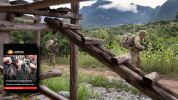
This article was originally published on 29th of September 2020. Our Unchecked Indo-Pacific Strategic Faultline Demanding greater strategic attention from Canberra is the future of the Antarctic, [i] a frontier where Indo-Pacific contestation is rising. Currently, the trajectory of the last unclaimed continent on earth, is all but overlooked in the Indo-Pacific narrative. This is a two-part blog piece examining the security challenges relating to the Antarctic. Antarctica is at an inflection point where …

The South Sudanese Civil War as a Case Study for the Insecurity of Women as the Greatest Predictor of Rebellion ABSTRACT This paper aims to provide a context in which the literature of two generally separate fields—gender and insecurity, and predictors of rebellion—can be combined to strengthen the existing framework of security studies. Using the South Sudanese civil war as a case study, it will propose that the greatest indicator of a future uprising is the insecurity of women and that until literature, …
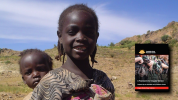
Christopher Webb is a Major in the Australian Regular Army, with a particular interest in Signals Intelligence and Information Warfare. He has served in East Timor and Iraq, as well as on various other multinational operations, exercises and engagements. MAJ Webb is attending the Australian Command and Staff Course in 2021, and has completed a Masters of Military and Defence Studies at the Australian National University. MAJ Webb is currently studying a Masters in Strategy, Cybersecurity, and Diplomacy …
This article was originally published on 12th of February 2019. “My past is an armour I cannot take off, no matter how many times you tell me the war is over.” - unknown Post-Traumatic Stress Disorder (PTSD) is often thought to have arisen with the advent of mechanised warfare—think shell shock and the First World War—but the examination of ancient texts offers sufficient evidence that PTSD may be as old as the act of war itself. This raises the question of how might have ancient cultures dealt with PTSD …
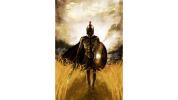
This article was originally published on 7th of October 2021. Do you have something to say about the future of Australian Army land power? The Australian Army Research Centre (AARC) invites your contribution to our series of publications; the Australian Army Journal, Occasional Paper Series and the Land Power Forum. The AARC fosters thought leadership to enhance Australian land power. We work to raise the level of professional debate on war, military force, future land capability development, and its …
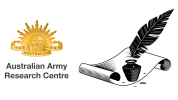
Lessons from IDF/Hamas’s conflict of 2021 The use of conventional anti-air defence system by Israel against rockets emanating from the Palestinian controlled region of the Gaza city, cannot be mistaken for a conventional response against an adversary’s rocket attack. The Israel’s response may have been perceived by the international community to be merely conventional, but the use of emerging technology such as artificial intelligence (AI) to anticipate targets and identify possible rocket battery …
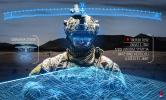
Studies in British Military History By Brian Bond Helion , Solihull, 2015, 978-1-9107-7757-2, 238pp. Reviewed by Brigadier Chris Roberts AM, CSC (Retd) Covering a diverse range of subjects, this splendid book presents a selection of Professor Brian Bond’s insightful and thought provoking essays from a long academic career in war studies. Highly readable, the essays represent scholarship of the highest order that command respect and consideration irrespective of one’s views on each of the topics …

One of the most effective techniques employed by the ADF for the detection of explosive materials is the use of explosive detection dogs (EDDs). Despite the advancements in explosive detection instrumentation, the use of EDDs has remained a reliable method to detect explosives due to the dogs’ capacity to discriminate a wide range of vapours, along with the accompanying high sensitivity of their olfactory system. However, the long-term reliance on EDDs has led to increased scrutiny of canine explosive …
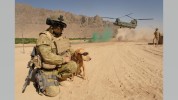
LT Oscar Fowler is a RASigs officer currently posted at the AARC in AHQ. He has completed a Bachelor of Science in Physics and Chemistry through UNSW Canberra with his studies focusing explosives and hazardous vapour detection. LT Fowler is also working alongside DSTG and Air Force Plan Jericho as the project manager and system designer for the Canary Sensor System. … Oscar …

